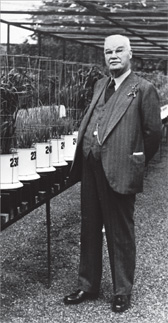Kate is best known for her unique “doughnut economics” model, which emphasises the need to balance humanity’s needs with the health of the planet. She is the author of the internationally bestselling book Doughnut Economics: Seven Ways to Think Like a 21st Century Economist, a Professor of Practice at Amsterdam University of Applied Sciences, a Senior Teaching Fellow at Oxford University’s Environmental Change Institute, and a frequent contributor to the Guardian, New Statesman, and various TV and radio programmes.
Speaking before the lecture, Kate said: “I am honoured to have given the 2025 TB Macaulay Lecture, and look forward to sharing the concepts, tools and practice of Doughnut Economics."
Joe Moore, Chair of the Macaulay Development Trust, said: “As a country rich in both nature and resources, it’s essential for Scotland to strike a balance between aspiring to provide a high quality of life for all and at the same time protecting the environment on which that aspiration depends. We’re delighted to have an economist with Kate’s international prestige joining us to speak about Doughnut Economics."
Professor Colin Campbell, CEO at The James Hutton Institute said, "We were very excited to announce Kate as the speaker for the 46th TB Macaulay Lecture. Her understanding and experience of economics, in particular Doughnut Economics, has been thought-provoking for all in attendance."


 The annual T.B. Macaulay Lecture is held to honour the vision of
The annual T.B. Macaulay Lecture is held to honour the vision of